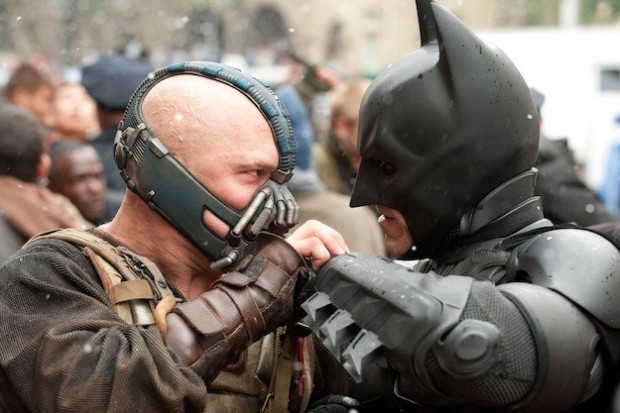My highly spoilerific Logan review
By Luke Jones
Spoilers ahead!
I wasn’t a fan of Logan when I first watched it.
The 10th(!) instalment
in the X-Men franchise is a challenging watch. It rejects many of the things we
expect from a modern superhero movie; there is no third act CGI-fest, scenes
are paced slower, no in-jokes to keep the fans happy. It is a dour, brutal
watch, and an understated climax to Hugh Jackman’s 17-year Wolverine career.
I left the cinema disappointed,
particularly in the wake of mostly positive reviews. However, it might have
taken me a few days but now I get it; Logan
is the most revolutionary superhero movie since Tim Burton’s original Batman.
That isn’t to say it’s the best,
or even my favourite (the macabre excess of Batman
Returns is likely to always reign supreme). Yet Logan has broadened the horizon of what a superhero movie can be. It
is the first mainstream superhero film that is unabashedly adult, not just in terms
of violence and bad language (1998’s Blade
got there way in advance) but in tone. This is a movie that doesn't just feature death and aging; they are placed front and centre, acting as the lens through which some of the most beloved characters in the X-Men universe are examined. It's an Alexander Payne film that just happens to feature a guy with
metal grafted to his skeleton.
Director James Mangold rejects
superhero cliché, both in execution (the soundtrack avoids thumping symphonia,
while CGI is used sparingly) and theme. Superhero films have dealt with aging
before; The Dark Knight Rises features
a past-his-prime Bruce Wayne, but where that film paid lip service to Batman’s
injuries, Logan allows both of its
leads to explore the aging process in a way relatable even for non-superheroes.
When was the last time you saw a lead character help someone else to the toilet
in a mainstream blockbuster?
I was initially distanced by the
strong violence, with some scenes coming across as gratuitous (picture Edward
Scissorhands trying to unscrew a bottle of ketchup and you’re some way there). With
hindsight however, the violence is used to make a statement in the vein of
Michael Haneke’s Funny Games. Scenes
ramp up the tension, inviting the audience to cheer Logan to unleash his
Wolverine persona. When the violence does come it is shocking; one memorable
scene has Logan slicing his way through a succession of anonymous henchman,
each frozen to the spot and fully aware of what is happening to them. The effect
is uncomfortable and in stark contrast to other blood-free, yet still highly
violent, superhero films.
As for Jackman and Stewart, I
fully expected their final runs as Wolverine and Professor X respectively to feature
glorious and heroic last stands. Instead their characters are deeply flawed,
making mistakes that are often rooted in selfish motivations. Where lesser films
would allow for redemption, in Logan the
consequences are violent and often fatal. This is most apparent during the
film’s midpoint, where Logan and Professor X find themselves staying the night with
a mid-Western family. Both characters know this is a bad idea, yet the former
is desperate for one night of normality and the latter is willing to indulge
his dying mentor. The decision proves costly, resulting in the massacre not
only of a main character but the entirety of the host family. The build-up and
fallout of this sequence is extraordinary; it’s like if the family of August: Osage County drank too much
moonshine and had a shoot-out after dinner. Worse still, Professor X is swiftly
despatched himself, his final words mumbled and incoherent and with the
knowledge that his actions led danger to the house of his hosts.
Both this death and that of Logan’s
are about as far from an ‘heroic’ death as it is possible to get. When Logan’s
own death comes it is without fanfare, the result of a fight which he does not
win and where, owing to the talents of those he is trying to save, he is
possibly not needed. It’s a far cry from the gymnastic Statue of Liberty fight
sequence back in the very first X-Men,
and again, a highly unorthodox way to treat a character’s death in a superhero
movie.
While Logan stands apart from historical superhero movies, it also stands apart from the current
trend for connected cinematic universes. The presence of the past X-Men films
is felt in Logan, but never to the
extent that it would prevent this movie from standing alone and telling its
story. This is neither better or worse than the approach taken by Marvel
Studios, where part of the joy is seeing how its characters play off one
another in a coherent world, but it allows for directors like James Mangold to
fully realise their vision and deliver offbeat one-shots. Perhaps this will be
the most exciting legacy of Logan, a
brave new future where auteurs can use larger budgets to realise their unique
ideas without worry of upsetting the apple cart (David Fincher’s Batman, anyone?). Until then, I can just
enjoy what will probably be 2017’s best film about a man with metal grafted to
his skeleton.



Comments
Post a Comment